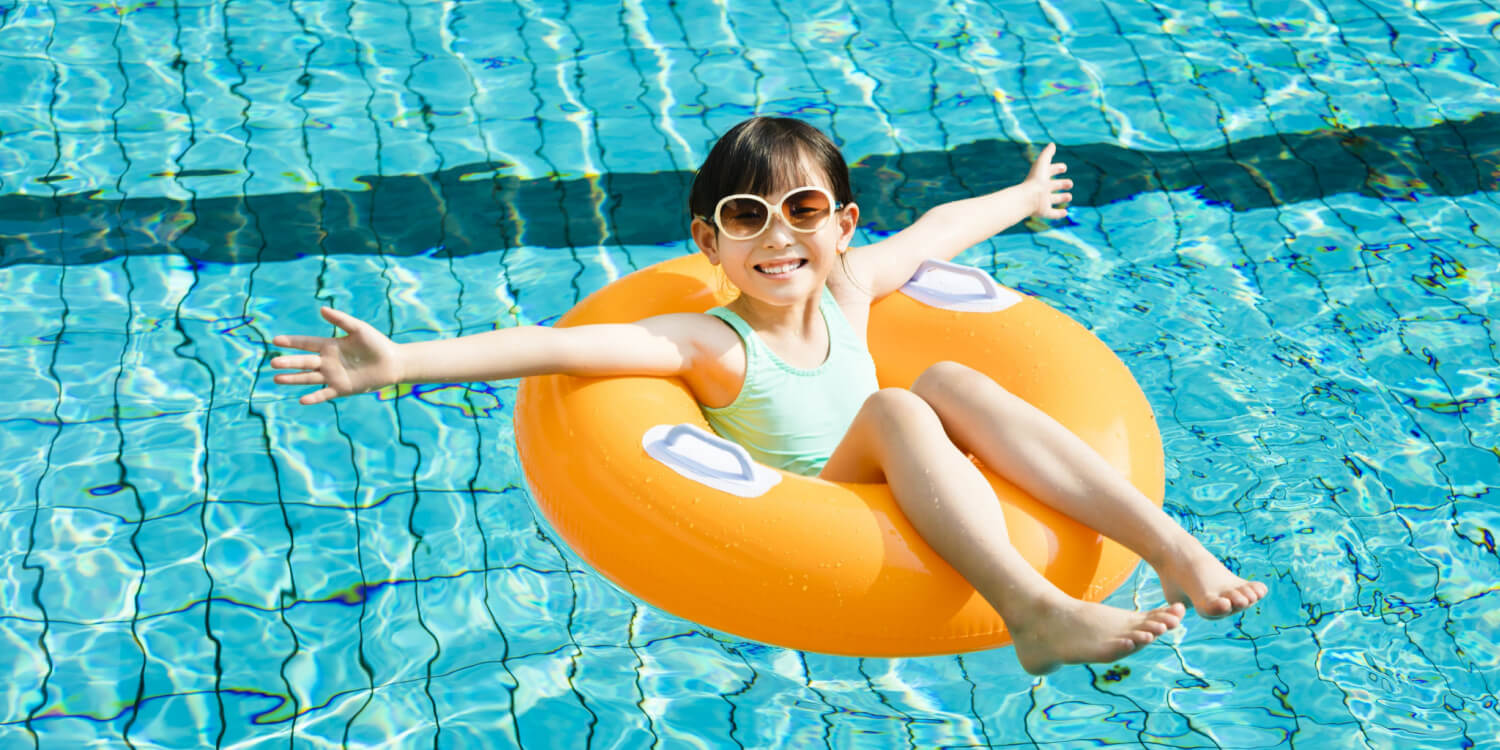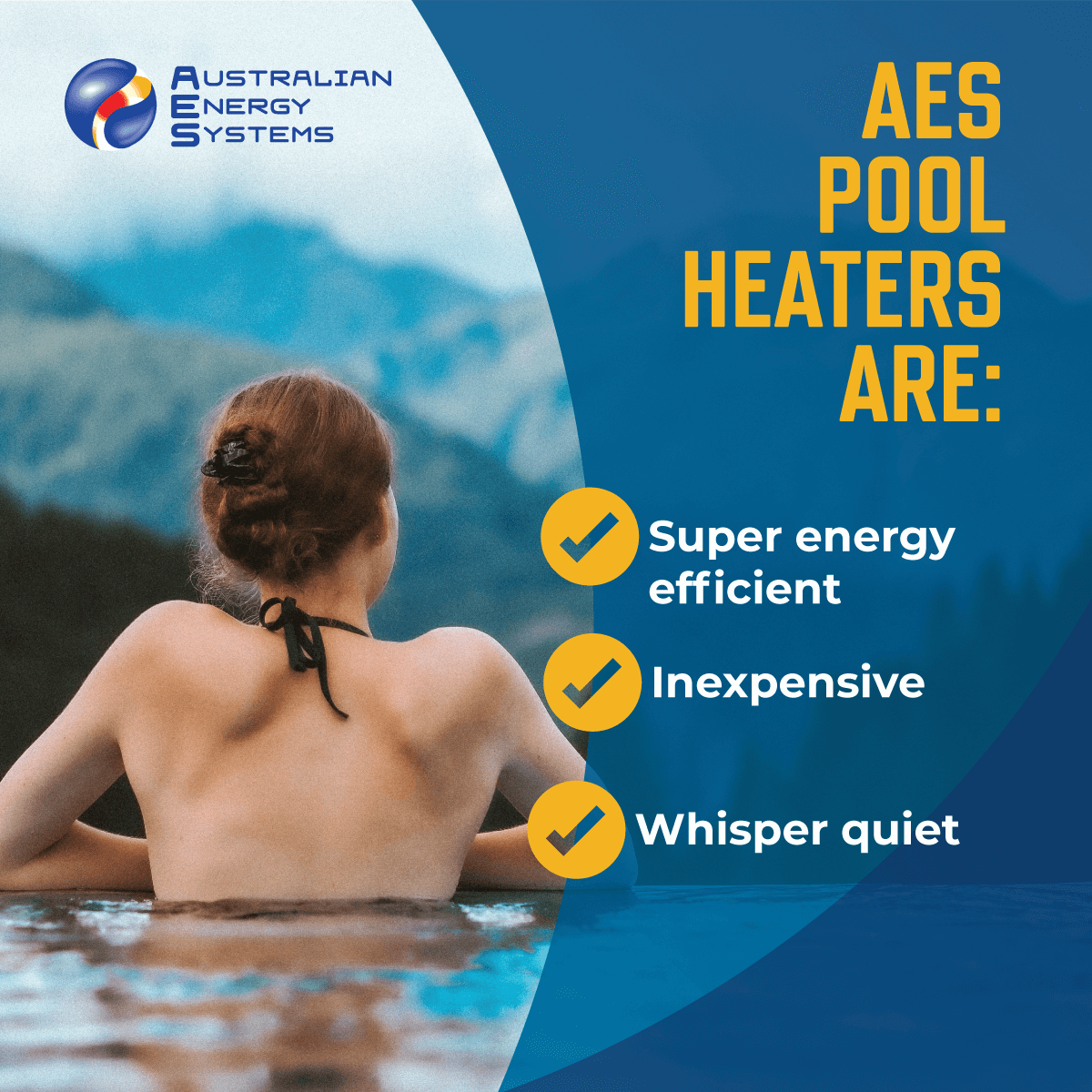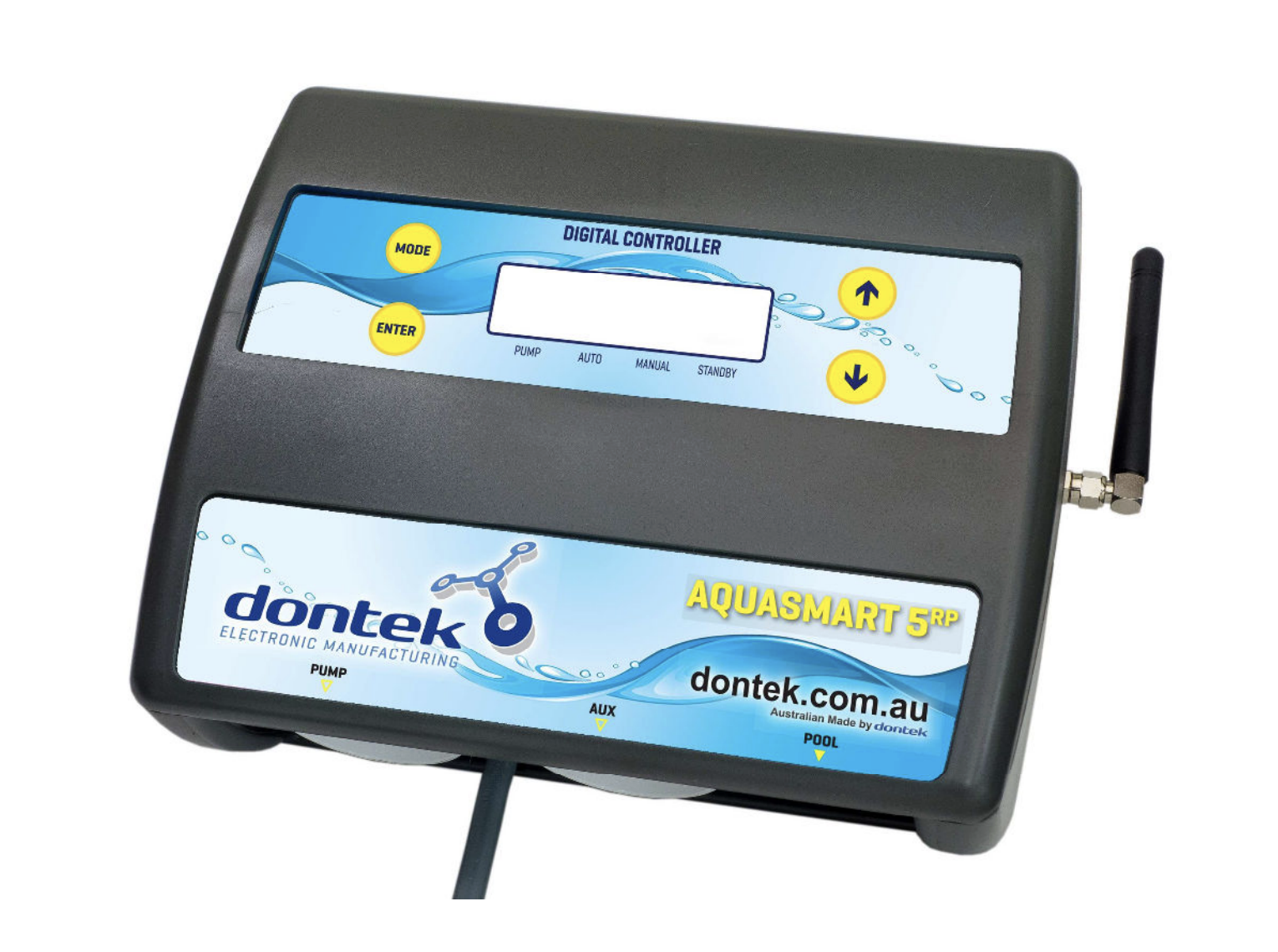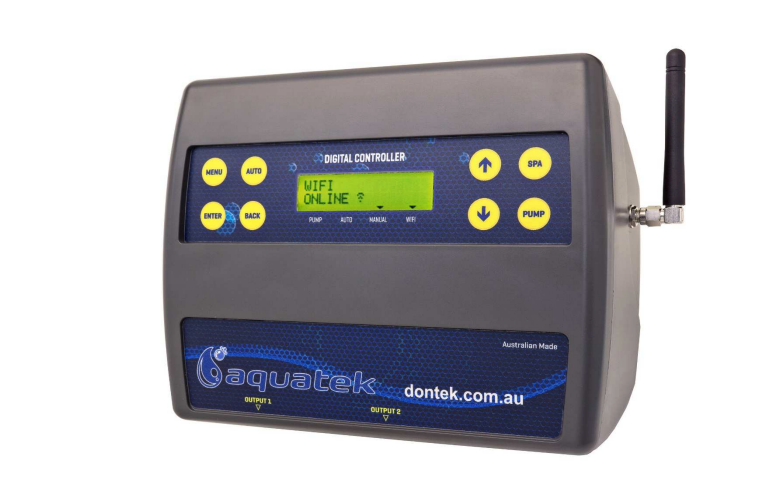In the game of pool heating, there are only three competitors: electric heat pumps, gas heaters and solar pool heaters. Here, we’ll pit them against each other to see which is the best option for you.
AES Pool Heating Tweet
In the game of pool heating, there are only three competitors: electric heat pumps, gas heaters, and solar pool heaters. Fortunately, it’s simple to work out which pool heater will suit your home. They each work differently and have unique benefits, which makes it easier to work out your winning option.
Just one important thing to remember is that cost is only one factor; it’s how your household uses your pool that should also motivate your decision. However, if you still need a hand, we’ll pit them against each other to see which is the best option for you.
Key Insights
- Gas pool heatings are fast but expensive to run and less eco-friendly.
- Solar pool heatings use renewable energy, offering low operational costs but rely heavily on sunlight.
- Pool heat pumps provide a balance between cost and performance, offering year-round heating in moderate climates.
- The best choice depends on your climate, budget, and pool usage. If you’re looking for fast, reliable heating, gas or heat pumps may suit you better, while solar is ideal for sunny areas and long-term savings.
Table of Contents
A quick snapshot of each type of pool heating
Electric heat pump: An electric heat pump uses heat from the air to warm the water it funnels from the pool and back in again. Units are usually installed next to the filtration system and come in a variety of sizes and capacities to match your pool size.
Solar pool heating: Just like a regular solar system, solar pool heating uses the sun’s energy to warm pool water that flows up and through black collector mats installed on the roof. Solar has small ongoing costs but more limitations.
Gas pool heaters: Much like heating your house water using gas, gas pool heaters use LPG to heat copper coils that your pool water runs through. Gas heats on-demand, making it the fastest pool heater but not the most cost-effective.
Each unit is installed in one day and will be ready to start heating your pool immediately.
Comparing initial and long-term costs
There isn’t an enormous or obvious difference in initial cost between heating options. It’s really the ongoing costs that matter because there’s a big difference between paying a few dollars a month and hundreds a month.
Remember ongoing costs will change depending on electricity and gas prices, and initial prices will vary by the size of your pool.
You’ll also need to pay installation costs, which you’ll be quoted when you speak to a pool heating expert. Typically you can expect to pay a few hundred dollars, and slightly more for solar since it’s manpower-intensive to mount on your roof.
Since the initial costs are competitive, choosing a pool heater involves looking at two factors:
- Ongoing costs
- How you want to use your pool
In the table, we’ve highlighted which systems will give you year-round heating. This helps you eliminate a particular pool heater if it doesn’t match your needs. But, remember there might be other factors at play; for instance, you might decide solar heating is fine but your home gets too much shade to give you the results you want.
Comparing by what outcome you want
Let’s look a little deeper into the way you want to use your pool and how it dictates which pool heater trumps the other.
Take a look at this table:
What you want | Solar pool heating | Electric heat pump | Gas heat pump |
Year-round swimming | No | Yes | Yes |
Extra weeks added to the swim season | Yes | Yes | Yes |
Fast heating time | No | Yes | Yes |
Low operating costs | Yes | Yes | No |
In a stand-off, an electric heat pump wins because it ticks the boxes for each scenario, giving you lots of flexibility in how you want to use it. By comparison, solar will only provide you with limited heating ability because its power depends on the amount of sunshine it receives.
Read more: Which pool heater lasts the longest?
Running costs vs personal usage
Solar pool heating may have the lowest running costs but it also offers the lowest value for your pool. It will add a few weeks to the beginning and end of summer, but little else. If you want more months of pool time, or even to swim year-round, you’ll need to look at an electric heat pump or a gas heater.
And, even though electricity costs are variable, there are ways to offset your power usage through solar panels, as well as shopping around for better deals.
We’ve already seen gas prices go up over the past 12 months and it’s expected to rise another 12% to 18% across the country by mid-2023. Volatile gas prices are one of the reasons we recommend electric heat pumps over gas.
Comparison based on different climates
How do heat pumps perform in colder climates?
Heat pumps are most effective in warmer climates, where ambient temperatures stay above 7°C (45°F). In cooler regions, efficiency drops as the system works harder to extract heat from the air, leading to higher operational costs. However, with proper insulation or using a pool cover, performance can improve.
What are the limitations of solar heating in low-sunlight areas?
Solar pool heating relies heavily on sunlight. In regions with frequent cloud cover or shorter days, the system may struggle to maintain consistent pool temperatures. Still, solar is an eco-friendly choice for areas with abundant sunshine throughout the year.
Which system is best for year-round use?
Only Gas systems are capable of heating smaller pools all year round, however, even though heat pumps outperform solar in cooler climates they still won’t be able to heat an average pool to a desirable temperature in the middle of winter. Solar systems, though cost-effective, cannot deliver consistent heating during off-peak seasons.
Environmental Impact of Gas, Solar, and Heat Pump Heaters
How does solar pool heating minimise environmental impact?
Solar pool heaters use renewable energy from the sun, making them the most eco-friendly option. They produce no greenhouse gases and have almost no ongoing energy costs. However, they are dependent on sunlight, which limits their effectiveness in regions with less sunshine.
What are the environmental concerns with gas heaters?
Gas heaters rely on burning fossil fuels like propane or natural gas, contributing significantly to carbon emissions and environmental degradation. While they offer quick heating, their large carbon footprint makes them the least environmentally friendly option.
How does a heat pump's efficiency impact its environmental footprint?
Heat pumps are relatively efficient, using electricity to transfer heat rather than generate it. While they still rely on the grid, their energy consumption is lower than gas heaters, making them a better alternative for environmentally conscious users.
Choosing the right pool heater for your needs
How to decide based on your climate and location
Your regional climate is one of the biggest factors when selecting a pool heater. If you live in a sunny area with mild winters, solar heating is the most eco-friendly and cost-effective option. For colder climates, a heat pump provides more reliable heating throughout the swimming season and in the fringe months.
Which system suits your budget and energy usage?
While gas heaters offer quick heating, they come with higher operational costs and a larger carbon footprint. Solar heaters have a higher upfront cost but minimal ongoing expenses. Heat pumps strike a balance with moderate installation and operational costs, though they rely on electricity.
What should you consider for long-term savings?
If you prioritise long-term savings and environmental impact, solar heaters are the clear winner. Heat pumps are ideal for consistent, year-round heating, especially in moderate climates, while gas heaters are best for occasional quick heating needs.
Time to heat your pool
Let’s look at how much time it takes to heat an average 32 cubic metre pool to reach 28 degrees using each of the three heaters:
- Solar pool heater: 24 – 96 hours
- Electric heat pump: 12 – 48 hours
- Gas heat pump: 4 – 12 hours
Electric heat pumps land in the happy median, taking only a day to bring your pool up to temperature. Gas heat pumps may do it faster, but you’ll pay more for the speed. Solar pool heaters can warm the water up to 10 degrees at a stretch, but can be limited the volume of solar energy.
FAQs
1. Which is more efficient for pool heating: a heat pump or solar pool heating?
Both systems have their advantages. Heat pumps are more efficient in colder climates since they don’t rely on sunlight and can maintain a consistent temperature year-round.
Solar pool heating, on the other hand, is highly efficient in sunny regions, using free energy from the sun to heat your pool. It has nearly zero operational costs but is weather-dependent. For energy savings, solar is ideal in warm climates, while heat pumps are better suited for consistent heating in varying weather conditions.
2. What are the key differences between a pool heat pump and solar pool heating?
The primary difference between pool heat pumps and solar pool heating is the energy source. Heat pumps use electricity to transfer heat from the air to the pool, making them efficient but dependent on energy costs. Solar heaters, however, rely on sunlight and offer virtually no ongoing costs but are less reliable in colder, cloudier regions. Heat pumps are more consistent in various climates, while solar systems are eco-friendly and cost-effective in sunny areas.
3. How long does it take to heat a pool with a heat pump vs solar pool heating?
Heat pumps generally heat a pool faster than solar systems. Depending on the pool size, a heat pump can raise the temperature in 12-48 hours. Solar heating is slower, taking anywhere from 24 hours to a few days, especially in cooler weather. Heat pumps provide quicker heating, especially if consistent warm temperatures are needed, while solar heating is more gradual and best suited for warmer, sunnier climates.
Don’t miss this!
When you’re comparing pool heaters, you’ll need to use this formula:
Personal usage vs. ongoing cost
How do you want to use your pool, and how much will it cost you per year to achieve it?
If you want to see what your options are, you can call our team anytime for a hand. We can explain the options and costs, and what would suit your lifestyle, location and pool size.
Lastly, you’ll drastically improve the cost-efficiency of your pool heater – whichever one you choose – by adding a pool cover, which can save up to 70% heat loss.









